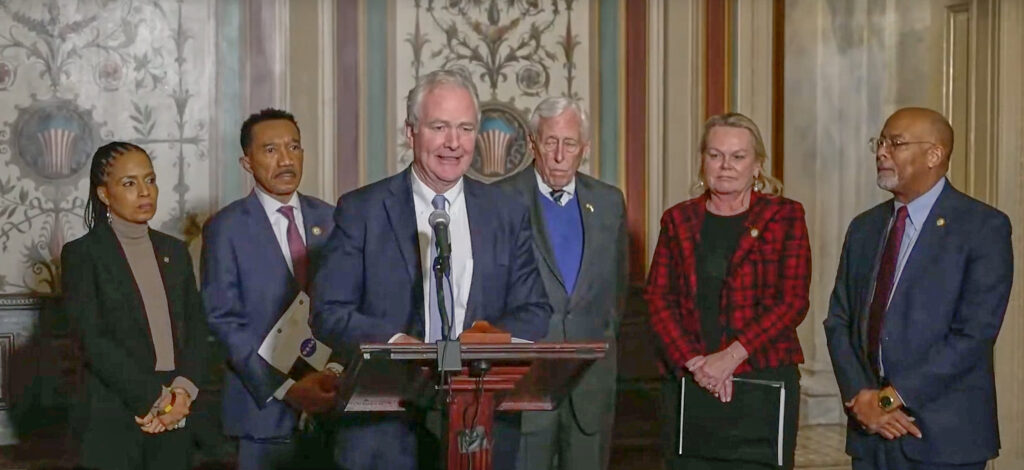The big event at the Greenbelt City Council meeting of Monday, July 13 was the proposed approval of the Collective Bargaining Agreement (CBA) between the city and the Fraternal Order of Police (FOP) that will run for one year instead of the more usual three-year contract. (The remainder of the meeting will be covered separately.)
The bargaining process for this agreement began some time before recent police brutality cases made headlines, but much of the angst on the question of whether to approve it, not surprisingly, arises out of recent heightened awareness of policing practices. In particular, Mayor Colin Byrd was clearly set against its passage, using his powers as mayor to dominate the proceedings with a number of long speeches that were a significant factor in extending the meeting past midnight. His only ally was Councilmember Rodney Roberts.
Public Observations
Things began civilly enough with expositions from members of the public of things they would like to see added to or removed from the agreement. Lore Rosenthal, for example, doesn’t want disciplinary records to be expunged so that officers looking to be hired elsewhere can be fully evaluated, even if an item did not result in any disciplinary action. Resident Melissa Ehrenreich requested public input up front and not at the end after all the decisions were made, and she also brought up Section 19.2 of the Law Enforcement Officers’ Bill of Rights (LEOBR) that has some sections likely to disappear with the repeal of that legislation. Michael Hartman wanted non-binary language in the agreement.
Approve or Disapprove
Reference to legal counsel eventually made it clear to everybody that not approving the contract and sending it back requesting any change – even one cosmetic or inconsequential to the meat of the agreement – would set the process back significantly. City Counsel Robert Sylvestri stated clearly that council wasn’t being asked to doctor the document but to either approve it or disapprove it. Approving would end the matter and the agreement would be ratified and in effect. Not approving it, even for a minor reason, would start the process again.
Officers᾿ Bill of Rights
One sticking point is language in the CBA that refers directly to the Maryland LEOBR, which seems highly likely to be repealed within the period of the CBA. The question was posed as to whether having an agreement that specifically references that law would include the language of the law by reference – even if the law itself is removed from the state statute books. Sylvestri said that sections of the law that depend on state law become null and void if the state law is repealed, and also that the city can expand the rights of officers beyond those allowed by the state, but cannot reduce them. He noted that this was a one-year contract, meaning that anything in it could be rethought shortly as the process began again.
The Question Called
After impassioned and lengthy speeches on one side and a fair number of sharp exchanges, expressive faces and finger wagging on both sides of the question, the motion to accept the agreement passed by 5 to 2 with Roberts and Byrd against. To get to this point, however, Councilmember Judith Davis had called the question (to force a vote) and the majority backed her. Byrd complained that calling the question was unfair to those who still had much to say, at which point Davis noted sharply that the discussion had become circular, the majority of her colleagues apparently agreed with her and that members of the public had been heard from as well as counsel. As far as she was concerned, there was no more to be achieved by discussion.
Next Steps
Councilmember Emmett Jordan, Ehrenreich and counsel pointed out that citizen input needed to go in before the draft was negotiated to closure and that a series of public meetings in the fall, before the draft was prepared, would be a productive way to accommodate citizen and council concerns.
Attorney Patrick J. McAndrew, who represents the FOP, noted that the agreement as it stands is a significant investment by the city and the FOP, that the prior agreement had expired and this agreement is, in fact, a stopgap in that the new agreement will be in negotiations at the end of the year into early 2021 while the state legislature is working on LEOBR. He also pointed out that Greenbelt wasn’t like Atlanta and Minneapolis in its policing – which drew some sharp criticism from Byrd who felt the city did not have a spotless record.
The public can see the entire discussion for themselves on the council video http://greenbeltmd.granicus.com/player/clip/1389?view_id=2 The discussion on the CBA begins at about 01:22:00 into the meeting and ends at around 02:50:00.



